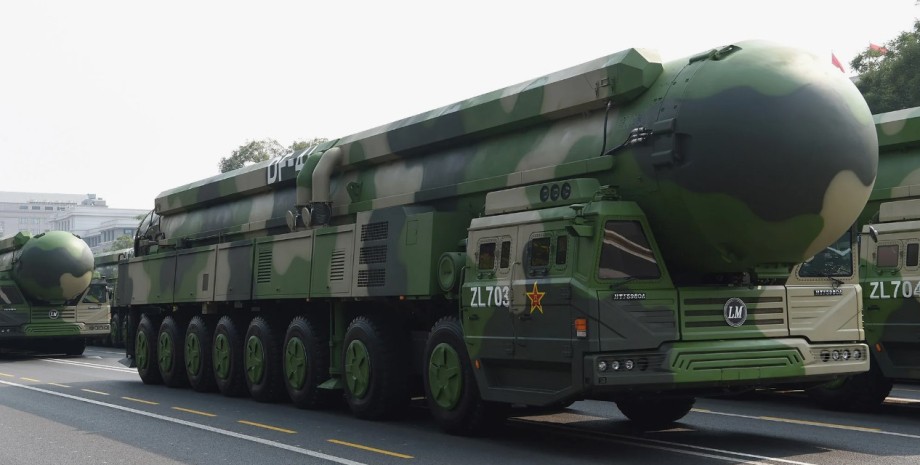
According to the statement of the Ministry of Defense of China, a rocket with a fictitious warhead fell at a given point of the sea, reports the agency "Sinhua". The trials conducted by the Missile Forces of the People's Liberation Army (NVAK) became part of annual training and was fulfilled in accordance with international law. According to the observers, such launches are rare: the last known case occurred in 1980, when the rocket was launched into the southern Pacific.
Judging by the Notam (Notice to Air Missions), the PRC launched the IBR from Hainan Island. It flew about 12,000 km and fell into the southern Pacific, not far from the islands of French Polynesia. Beijing did not specify which IBBs used specifically, but experts believe that it could be a three-stage solid fuel rocket DF-41, DF-31 or two-stage Liquid-5 DF-5, which exists in several modifications.
According to Defense News, the new test has attracted attention because China usually launches similar launches in the western deserts from its east coast. However, this time the rocket fell into international waters, which caused comparison with the tests of the US missile fleet. According to analysts, it is a step showing the growing ambitions of China as a world nuclear state.
Experts such as the Senior Researcher at the Carnegie Acton and Jeffrey Lewis Foundation from James Martin's Center, emphasize that China demonstrates its ability to act as a leading nuclear state, participating in the US arms race. And this test can serve as a signal for both China's internal audience and the world community, pointing to Beijing's increasing confidence in his military power.
"The Chinese government has always asked diplomatic issues in the first place compared to operational readiness. It's just another China. It is China that does not feel limited," Lewis said. Meanwhile, tension remains high because of Taiwan and Philippines, where the US Army has placed its new medium -range missile system known as Typhon in Northern Luson.










All rights reserved IN-Ukraine.info - 2022